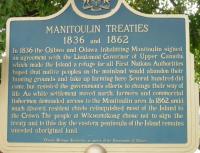By Alexa Walker
In the recently published final report for the IPinCH-supported project, Treaty Relations as a Method of Solving Intellectual Property and Cultural Heritage Issues, Michael Asch (Professor Emeritus at the University of Alberta), Allyshia West, Neil Vallance, Aimee Craft, and Kelsey Wrightson look at historical treaty relationships as a potential tool for solving current issues between Indigenous groups and settlers.
The key problem addressed by the report is the federal and provincial government’s claim of jurisdiction over First Nations heritage, including the “artifacts, cultural remains, and human remains of people who were here long before the state ever existed.”
The idea for the research project came from the insistence of the Supreme Court of Canada that—contrary to conventional beliefs—the commissioners involved in the historic British Columbia treaties had been truthful to First Nations, and that the treaties had not been made under dishonest pretenses. Asch and colleagues worked with this premise, developing a new method in which they compared First Nations’ oral accounts of the treaties to primary historical documents written by Commissioner Alexander Morris and his contemporaries. As Asch explains, “rather than saying that the written [treaties] represent our position…I’m saying what the commissioners said represents our position. The [treaties] just memorialize it, maybe incompletely.”
The team analyzed six treaties and documents associated with them, including the Manitoulin Island Treaties (Treaty 45; 1836 & 1862); Vancouver Island Treaties (also known as the Douglas Treaties; 1850-1854); the Stone Fort Treaty (Treaty 1); Treaty 4; Treaty 6; and Treaty 11.
Asch argues that there was a sense of mutual respect in the development of these historical treaties, and that the goal was not to “take things away from people. It was to work with them, for the betterment of all of us.”
The report also highlights a narrative that is often forgotten: that of the settlers who attempted to make fair deals with First Nations. Understanding this side of history is important, Asch says, because “unless you have a sense of your own history, and [you] can say ‘here’s who I am and here’s how I understand things’, then you’re not a reliable ally.”
Photo: M. Albano (ontarioplaques.com)
Listen to a podcast interview with Michael Asch >
Alexa Walker is an M.A. Candidate in the Department of Archaeology at Simon Fraser University, and the Research Assistant for the IPinCH Bioarchaeology WG.






